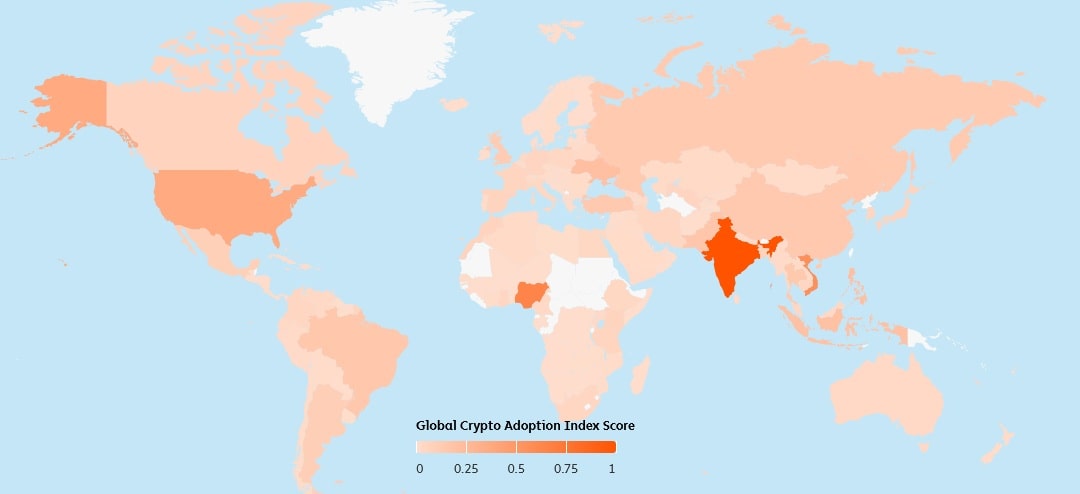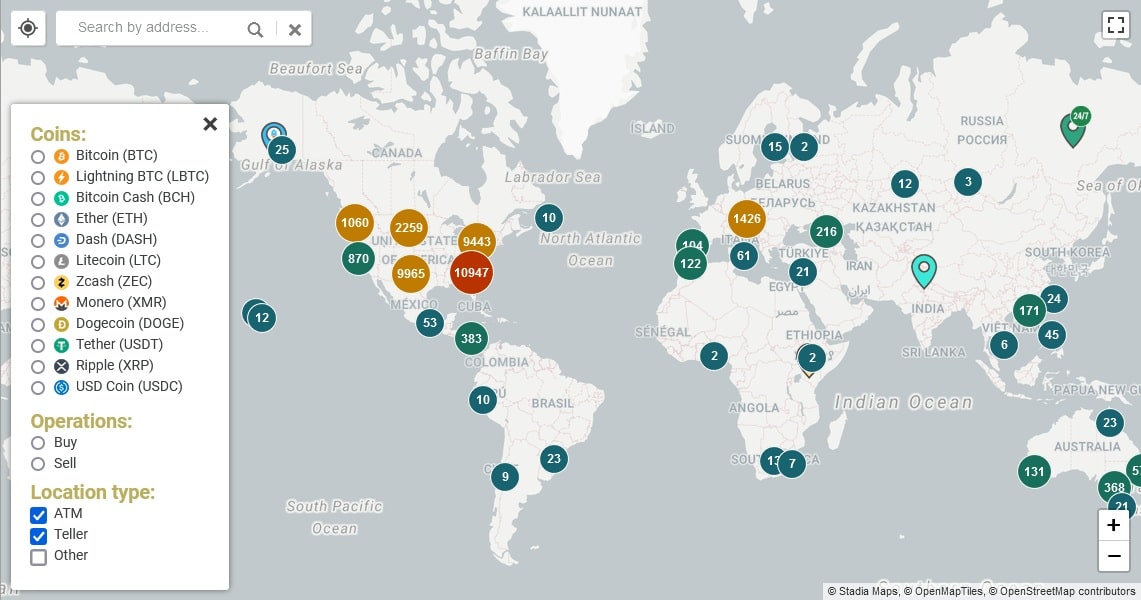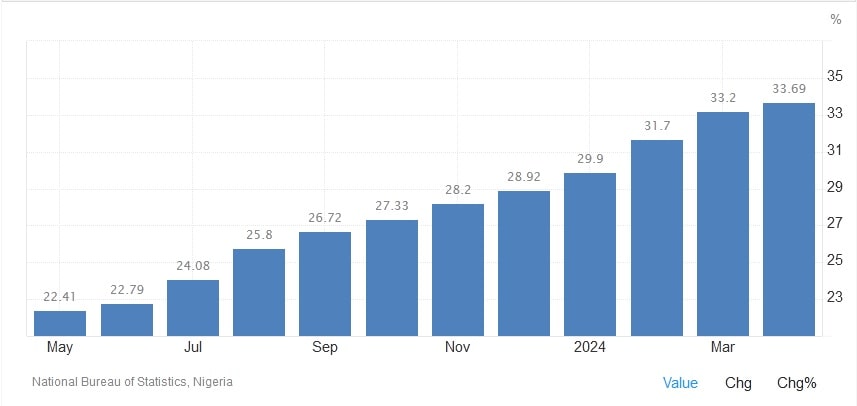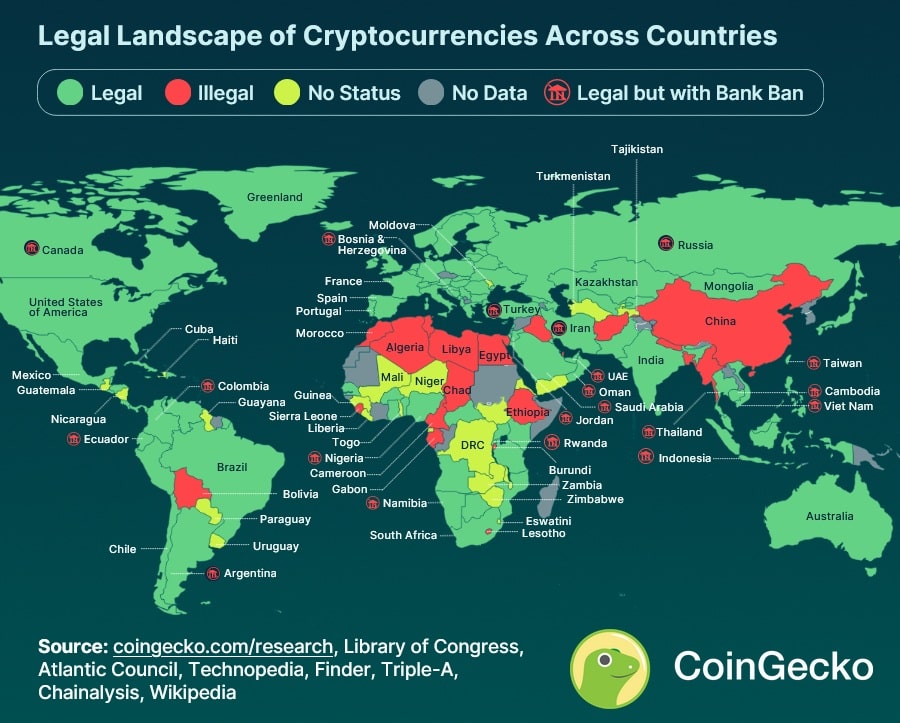The Top Countries Embracing Cryptocurrency

The rise of cryptocurrencies has seen different reactions from countries around the world, which has led to a diverse landscape of adoption and regulation. Some "crypto countries" are at the forefront of setting benchmarks with their progressive crypto regulation and widespread usage. This article explores what drives high adoption rates, showcases the leading countries in the crypto sphere, and outlines the nations that have banned cryptocurrencies.

Factors contributing to high crypto adoption in countries
The adoption of cryptocurrency in a country is influenced by a range of factors that interact and reinforce each other. These factors can be broadly categorised into four key areas: technological infrastructure, regulatory environment, economic conditions, and cultural acceptance and awareness.
Technological infrastructure
Robust technological infrastructure is vital for widespread cryptocurrency adoption. Countries with high internet penetration rates are more likely to see high cryptocurrency adoption, as a strong digital infrastructure facilitates easy access to and use of digital currencies. The widespread use of smartphones and mobile devices can also contribute to high crypto adoption, as mobile apps and wallets make it easier for users to access and manage their digital assets. South Korea and Japan, with their cutting-edge technology ecosystems, exemplify how a strong technological foundation can drive crypto adoption.
Regulatory environment
Clear, supportive regulatory frameworks encourage innovation and investment in the crypto space. Countries like Switzerland have established themselves as crypto-friendly hubs due to their progressive regulatory environments. Conversely, countries with restrictive or ambiguous regulations may discourage businesses from operating in the crypto space.
Economic conditions
In countries experiencing economic instability and high inflation, cryptocurrencies often emerge as an attractive alternative to traditional fiat currencies. For example, in nations like Venezuela and Argentina, where inflation rates are high, cryptocurrencies such as Bitcoin provide a means of preserving value and offer citizens a way to protect their savings from devaluation.
In addition, in countries where traditional banking services are limited and inaccessible, cryptocurrency can provide an alternative means of conducting financial transactions and storing assets.
Cultural acceptance and awareness
Cultural openness to innovation and favourable demographic trends also influence cryptocurrency adoption. Countries with a population that is open to new technologies and eager to explore alternative forms of money are more likely to embrace cryptocurrencies. Additionally, younger populations, who are typically more tech-savvy and open to digital innovations, tend to drive higher adoption rates.
Leading countries in crypto adoption
So, what are the best countries for crypto enthusiasts? There are many countries where cryptocurrency is legal. However, several countries stand out for their progressive approaches and significant involvement in the crypto space. Some countries, on the other hand, are becoming leaders in crypto adoption even in spite of restrictive regulations.

United States
The United States is a global leader in crypto adoption, driven by the country's robust tech infrastructure, vibrant investment culture, and regulatory advancements. The country hosts numerous cryptocurrency exchanges, blockchain startups, and investment firms. While regulations are evolving, the U.S. has generally taken a balanced approach, fostering innovation while ensuring consumer protection and financial stability. Major cities such as San Francisco are hubs for crypto innovation, contributing to the country's dominance in the industry.
India
India is emerging as a significant player in the cryptocurrency landscape despite regulatory uncertainties. The country has a large and tech-savvy population, which has shown a growing interest in digital currencies. The Supreme Court of India lifted a ban on cryptocurrencies in 2020, allowing exchanges and businesses to operate more freely. India's large remittance market, high inflation rates, and the increasing adoption of digital payments have fuelled interest in cryptocurrencies.
Nigeria
Nigeria has one of the highest rates of cryptocurrency adoption globally, driven by economic challenges and a young, tech-savvy population. Many Nigerians use cryptocurrencies as a hedge against inflation and currency devaluation, as well as for remittances and online transactions. Despite the Central Bank of Nigeria's (CBN) directive in 2021 prohibiting financial institutions from dealing in cryptocurrencies, peer-to-peer trading has thrived. Nigeria's active crypto community and the growing need for financial inclusion have made it one of the leading countries in crypto adoption.

Vietnam
Vietnam is rapidly becoming a hotspot for cryptocurrency adoption, which is characterised by high levels of interest and participation in the digital currency market. The country has seen significant growth in the use of cryptocurrencies for investment and remittances. Factors such as a large unbanked population, high demand for cross-border remittances and the need for a hedge against inflation contribute to Vietnam's leading position in the adoption of cryptocurrencies.
Japan
Japan is another leading nation in crypto adoption, known for its early embrace of cryptocurrencies. The country recognised Bitcoin as legal property in 2017. Japan's Financial Services Agency (FSA) actively monitors and regulates the crypto market. The country has implemented strict KYC/AML regulations and guidelines for cryptocurrency exchanges. Japan has a thriving blockchain technology sector, which makes it a significant player in the global crypto arena.
Switzerland
Switzerland is renowned for its crypto-friendly regulatory environment and strong financial sector. The canton of Zug, often referred to as "Crypto Valley," has become a global hub for crypto and blockchain companies, attracting talent and investment from around the world. Starting in 2021, Zug allows its residents to pay taxes in Bitcoin and Ethereum. Switzerland's progressive approach to regulation and innovation makes it a leading country in crypto adoption.
South Korea
South Korea is also a major player in the crypto space, with a large number of exchanges and a high level of trading activity. The country's tech-savvy population and advanced technological infrastructure facilitate widespread use and investment in digital assets. South Korea's government has implemented comprehensive regulations for the crypto market that focus on anti-money laundering (AML) measures. Cities like Seoul are centres of crypto activity that drive innovation and adoption.
El Salvador
El Salvador has made headlines globally by becoming the first country to adopt Bitcoin as legal tender. This bold move, initiated by President Nayib Bukele and enacted through legislation in June 2021, positions El Salvador uniquely in the crypto space. The government aims to leverage Bitcoin to boost financial inclusion, attract foreign investment, and stimulate economic growth. To support this initiative, El Salvador has rolled out infrastructure like Bitcoin ATMs and the Chivo digital wallet, which enables citizens to transact in Bitcoin seamlessly.
Despite facing challenges and scepticism from international financial institutions and some segments of the local population, El Salvador's pioneering stance on Bitcoin adoption marks it as a leading country in the global cryptocurrency landscape. Among crypto legal countries, El Salvador is notable for its groundbreaking approach.
Сountries that have banned cryptocurrency
On the other end of the spectrum, there are countries that have taken an outright hostile approach towards cryptocurrencies. Here, we examine some notable examples of countries where crypto has been banned.

China
China is the most prominent country that has banned cryptocurrency. The Chinese government has implemented a series of measures to clamp down on all forms of crypto activity. In 2017, China banned initial coin offerings (ICOs) and shut down domestic cryptocurrency exchanges. The government intensified its efforts in 2021 by prohibiting financial institutions from providing services related to cryptocurrencies, banning crypto mining and declaring all crypto transactions illegal.
Algeria
Algeria has adopted a stringent stance against cryptocurrencies. The country's Financial Law of 2018 explicitly prohibits the use, possession, purchase, and sale of cryptocurrencies.
Egypt
The Central Bank of Egypt banned the creation, trading or promotion of cryptocurrencies in 2020. Additionally, there are religious considerations, as Egypt's Dar al-Ifta, the country's primary Islamic legislator, issued a fatwa declaring cryptocurrency trading haram (forbidden) under Islamic law.
Bangladesh
Bangladesh has taken a hardline approach to cryptocurrencies, declaring them illegal and subject to severe penalties. The Bangladesh Bank issued a warning in 2014, stating that the use of virtual currencies such as Bitcoin was illegal under the country's anti-money laundering and anti-terrorism financing laws. The harsh penalties for involvement in cryptocurrency activities, including imprisonment, underscore the government's stringent stance on cryptocurrencies.
Tags
Try our Bitcoin Cloud Miner and get additional crypto rewards based on your trading volume. It's immediately available upon registration.
Try our Bitcoin Cloud Miner and get additional crypto rewards based on your trading volume. It's immediately available upon registration.
FAQ
What are the key factors behind countries adopting cryptocurrency at a higher rate?
The key factors behind countries adopting cryptocurrency at a higher rate include financial inclusion, technological innovation, investment opportunities, regulatory clarity, economic efficiency, and growing public interest and awareness of cryptocurrencies.
Which was the first country to adopt a cryptocurrency as its official currency?
El Salvador recognised Bitcoin as legal tender in 2021, thus becoming the first country with cryptocurrency as an official currency.
What are the countries with the highest crypto adoption?
According to Chainalysis, the countries with the highest crypto adoption at the moment are India, Nigeria, Vietnam and the United States.



